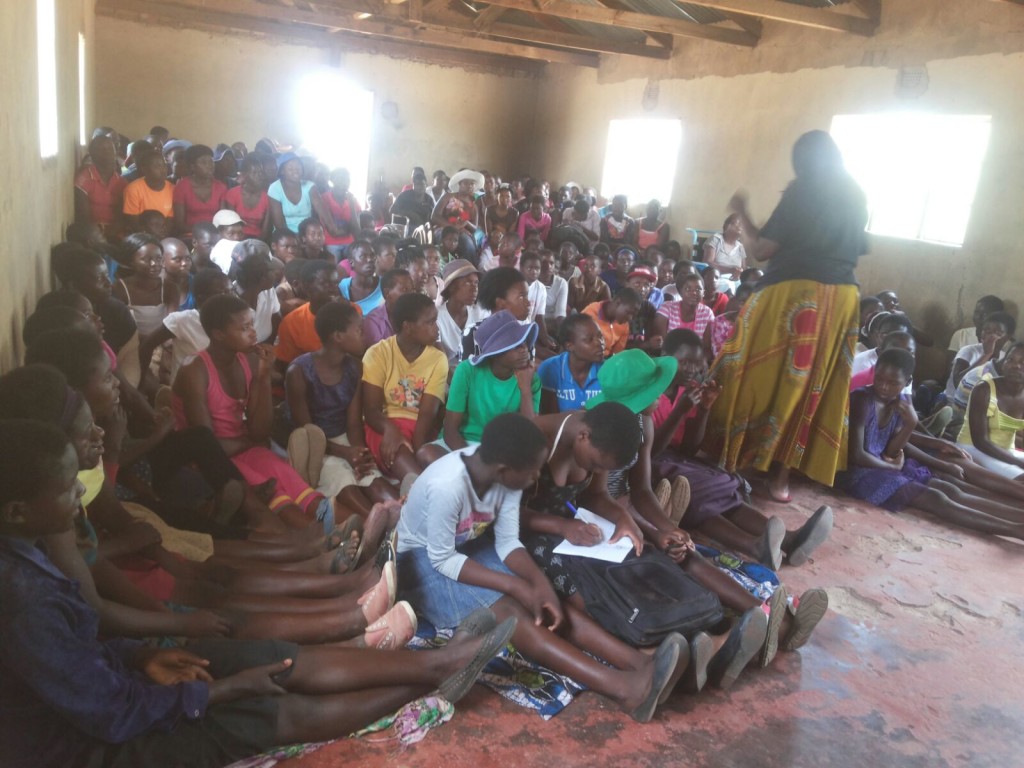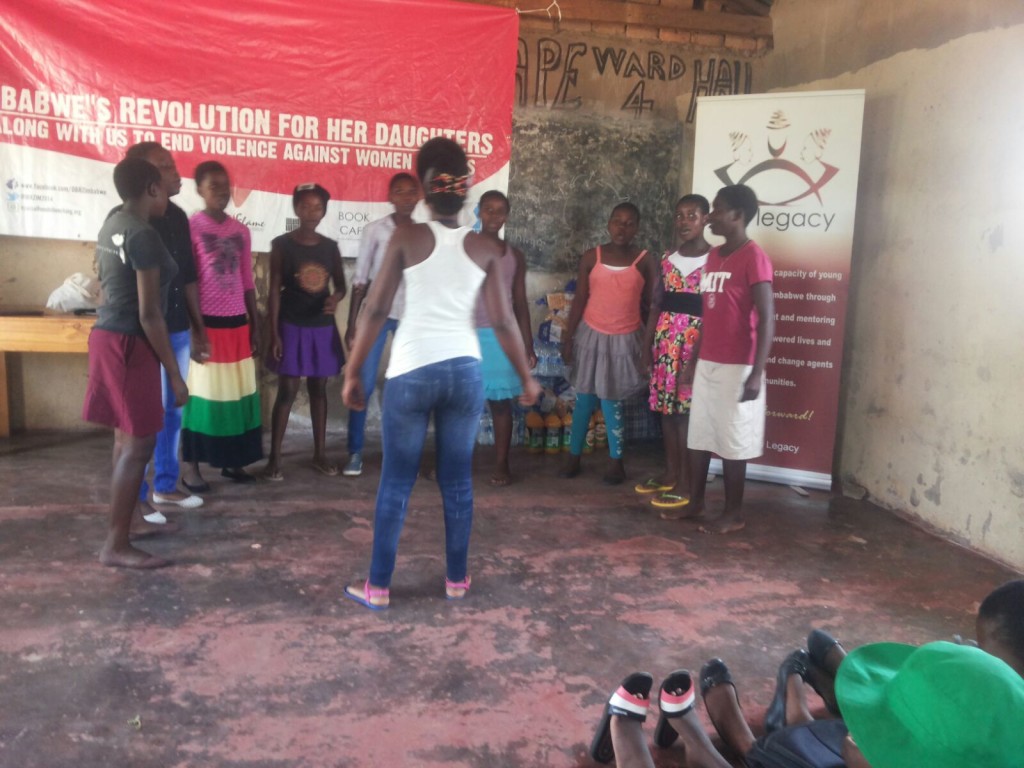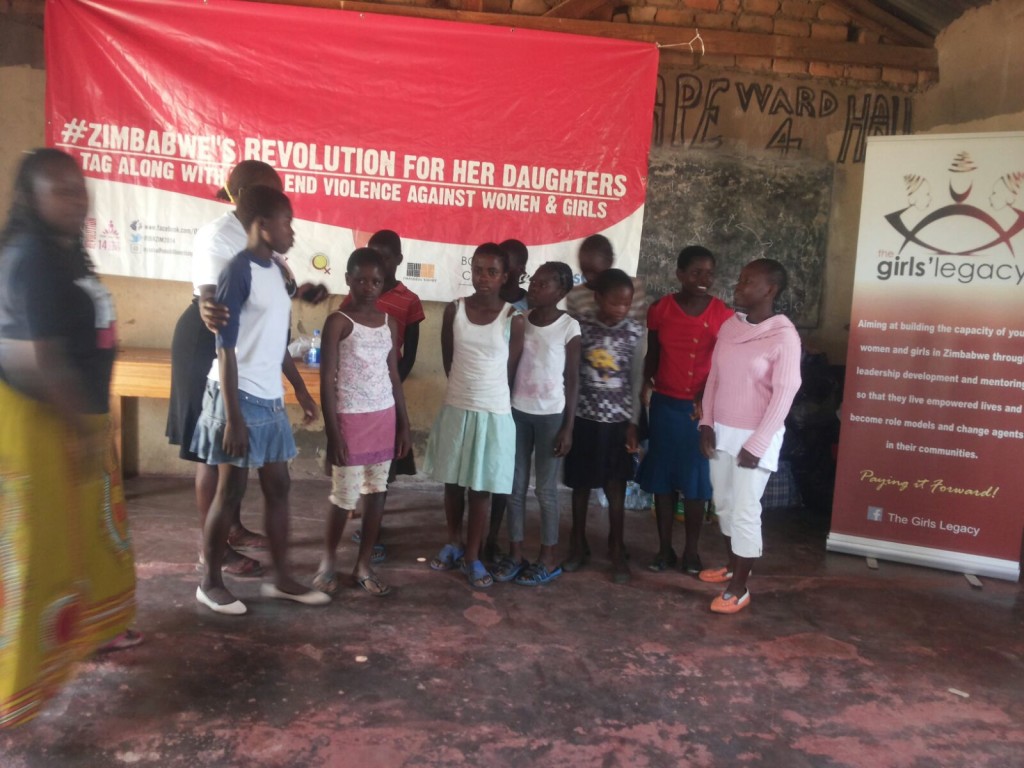Zimbabwe launched the One Billion Rising Campaign on the 4th of December in Domboshawa which is a rural community. The launch was premised on raising awareness on the global theme for the campaign which is One Billion Rising Revolution. In wake of this, One Billion Rising Zimbabwe in partnership with the Girls Legacy organisation organised the launch to bring the agency of the revolution to a rural community in commemoration of marginalised women and girls which was scheduled for the 2nd of December.
In the past year, Zimbabwe has seen a steady increase in Sexual and Gender Based Violence and young girls have been the majority of the victims in the cases reported this year. Adding on to this, child marriages are on the rise due to the worsening socio-economic crisis in the nation. As is, it is critical to note that this increase in the violation on women’s and girls’ bodies has derailed the efforts which are being made by the broader women’s movement in Zimbabwe to curb violence against them.
In this regard, girls have been much vulnerable as they are not adequately socialised to protect and speak out against violence on their bodies at a young age. Work previously done by the Girls Legacy, has highlighted that most girls between 8 and 16 cannot conceptualize what abuse is and are susceptible t o sexual abuse. As a result, in developing our campaign strategy for 2015, OBRZIM has realised the need to raise awareness to young girls in particular on how they can own their bodies as a revolutionary way of fighting abuse. Whilst our primary intention was to rise and dance on the day , we realised that women and girls living in marginalised communities are even being discriminated in terms of receiving legal services in case of any form of abuse occurring. We received so many reports of abuse which we need to follow up to the relevant authorities of justice.
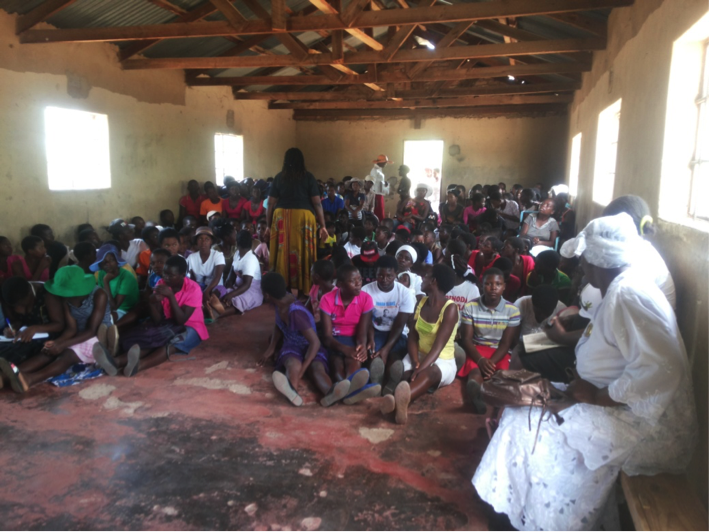
Furthermore, it was evident that most of the girls who came in their numbers to dance are also at the brunt of feminization of poverty. As the economic situation is worsening in the country, a lot of the young girls are being traded off for marriages so that their families survive. This is particularly worrying as there is research evidence showing that child marriages cannot get families out of poverty. They were also young girls who already have children and are as young as 14 years old. This experience made us realise that the journey to attaining equality cannot be complete without making girls a part of mainstream revolutionary activism to end violence against women and girls. Women are not valued from the time they are born and as they grow up. This stems the endemic violence which is being inflicted on their bodies. Thus, the recognition that girls have to be safe as they progress to becoming women of note is critical if we are to preserve the future of the revolution. For Zimbabwe, the revolution is not complete without the girls. They are the future of the revolution which OBRZIM intends to grow and sustain.
Thus as we launched this year, we tasked the girls to do drama, music and poetry; all created by themselves so that they could map a revolution which they wanted. The girls had a lot of creative activities which they lined up for the event. Our team collected messages which we dubbed “Revolution texts” which we will be send via bulk SMS and social media to spread a message on revolution. Some of the messages and affirmations which caught our attention from the songs and dance poetry are as translated are:-
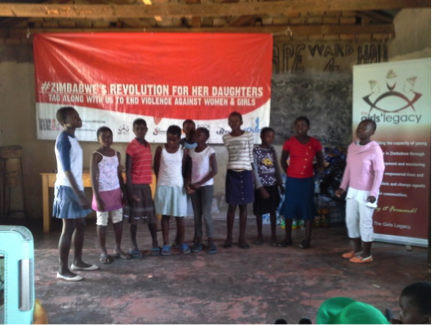
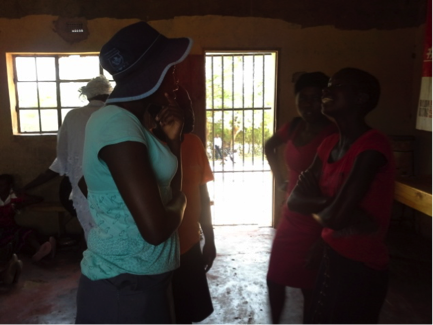
Figure 1 Girls performing songs and drama illustrating situations of abuse
In addition to this, we were able to bring in community leaders to address the launch. The strength of the Zimbabwean revolution has been premised on working with traditional chieftainship as they hold a greater influence that can shape the societal behaviours on how girls and women are valued whether positively or negatively. Taking this into consideration OBR ZIM has seen it fit to work with traditional leaders to influence communities to end violence against women. In respect of this, OBRZIM was privileged to have traditional leaders coming in to assert their commitment to assisting women and girls to eradicate violence in their communities.
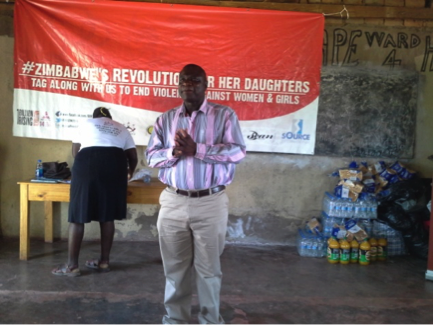
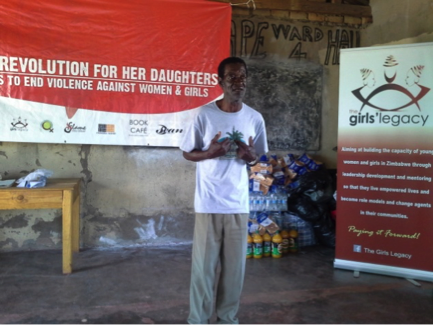
Figure 2 Community headman and the chief speaking on the need for communities to end violence against women and girls.
As we continue to prepare for our 2016 rising we are shaping and developing strategy to ensure that communities learn the initiative to rise on their own and create their own community revolutions through the guidance of their traditional leaders. Women and girls really need to be empowered to create relevant action to protest and develop their capacities to demand and access transitional justice if they are to win the war against violence on their bodies.
“OBR Zimbabwe launched in a rural area called Domboshawa last December 4th. We had over 200 girls and women dancing at the event where we held a dance competition, and did a Rising with music, poetry, drama, dance and music.” – Nyasha Sengayi
